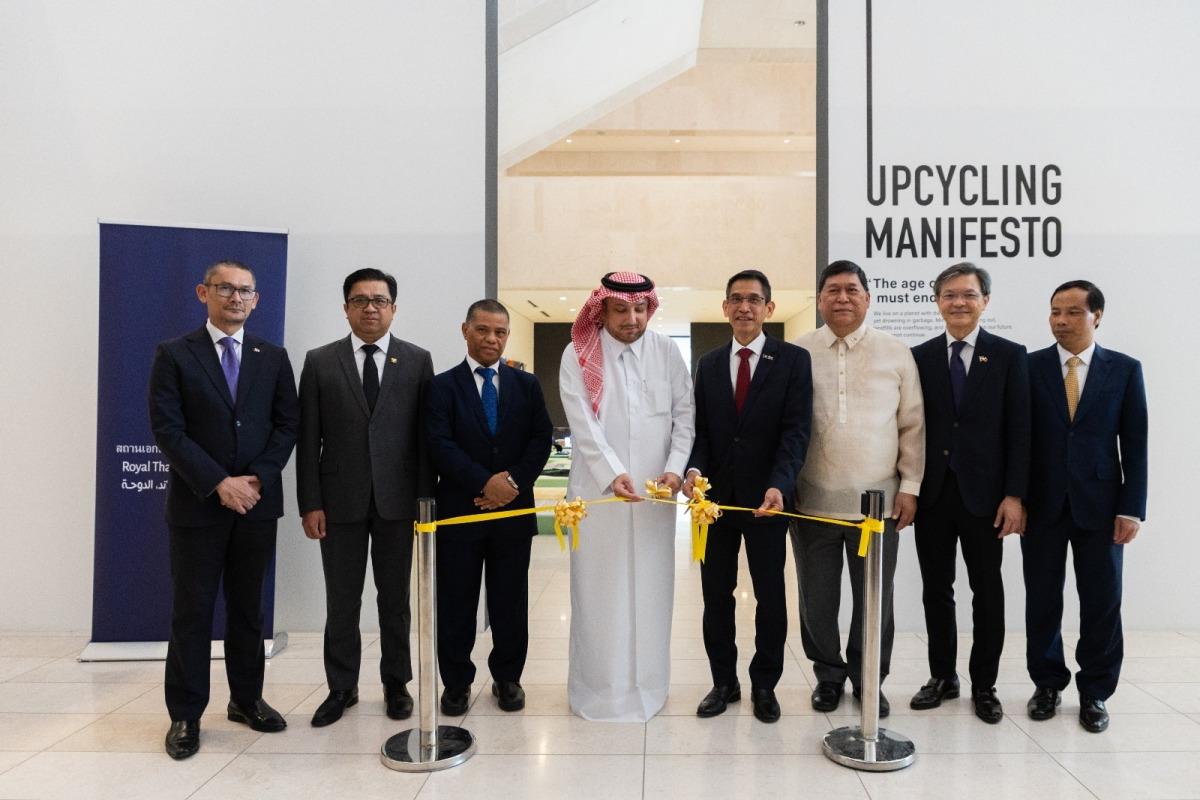
Thai Exhibition Highlights Human-Centred Approach To Sustainability
Doha, Qatar: The Royal Thai Embassy in collaboration with Qatar Museums inaugurated the exhibition,“Thailand's Innovative Upcycling for Everyday Life” at M7 Gallery recently.
The week-long exhibition was officially launched with a ribbon-cutting ceremony presided over by Ambassador of the Kingdom of Thailand to the State of Qatar H E Sira Swangsilpa together with Director of the Department of Protocol of the Ministry of Foreign Affairs of Qatar H E Ibrahim Fakhro, and Founder of Scrap Lab at Kasetsart University Associate Prof Dr. Singh Intrachooto and distinguished guests.
The ceremony brought together more than 80 participants, including senior Qatari officials, Ambassadors and members of the diplomatic corps, researchers, entrepreneurs, academia, and representatives of the local media. H E Fakhro joined the event as Guest of Honour.
In his opening remarks, H E Ambassador Swangsilpa emphasised that the exhibition reflects Thailand's Bio-Circular-Green (BCG) Economy Model, which extends beyond an economic framework. It represents a bridge between science and local wisdom, tradition and innovation, culture and sustainability.“Sustainability is not merely a concept. It is something we can see, touch, and bring into everyday life. It is also a vision we can advance together with Qatar, through creativity, environmental stewardship, and shared values,” he noted.
Associate Prof Dr. Singh Intrachooto presented innovative material developments derived from construction by-products, underlining the vital role of waste reclamation in sustainable design. He demonstrated how discarded materials can be transformed into high-value products, positioning Thailand as a leader in ecological innovation while exploring new avenues for collaboration between Thailand and Qatar.
Building on Thailand's participation in the Earthna Summit 2025, the exhibition highlighted a human-centred approach to sustainability, integrating modern technology, local knowledge, and environmental responsibility. The curated displays featured eco-textiles, artisanal homeware, and lifestyle innovations, including carpets woven from upcycled plastics in traditional designs, footwear crafted from agricultural by-products, homeware made from marine debris, and fashion accessories reimagined from car tail lights and discarded medical equipment.

Legal Disclaimer:
MENAFN provides the
information “as is” without warranty of any kind. We do not accept
any responsibility or liability for the accuracy, content, images,
videos, licenses, completeness, legality, or reliability of the information
contained in this article. If you have any complaints or copyright
issues related to this article, kindly contact the provider above.


















Comments
No comment